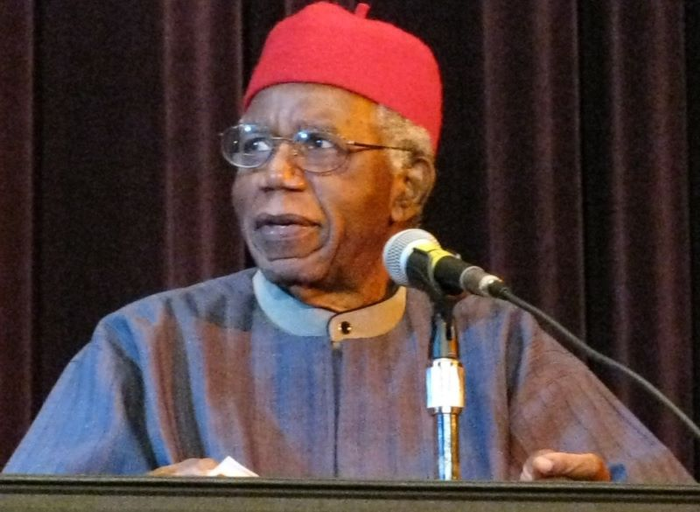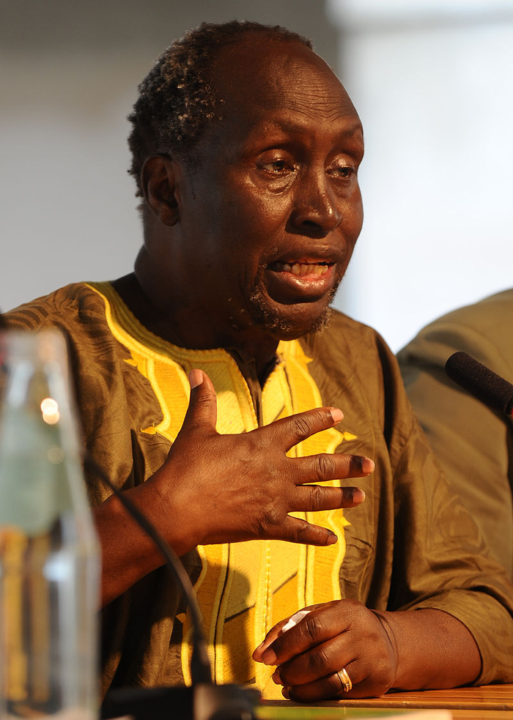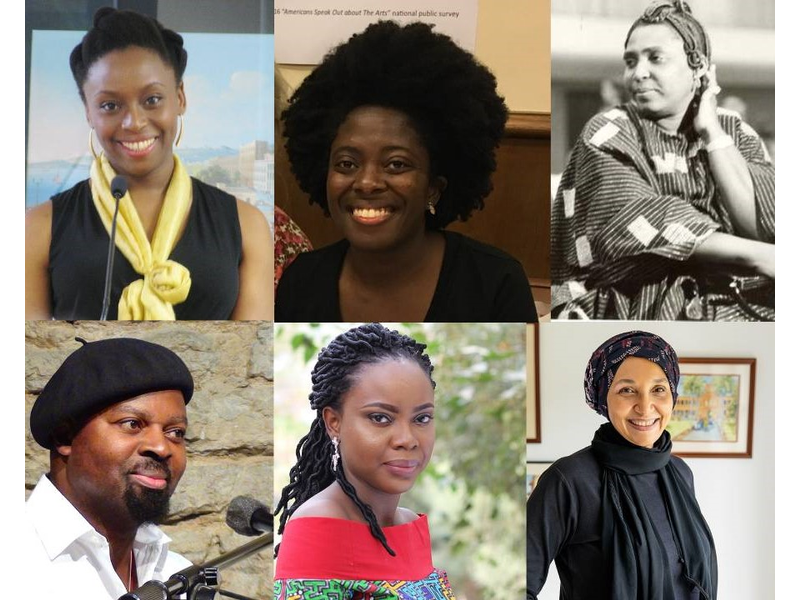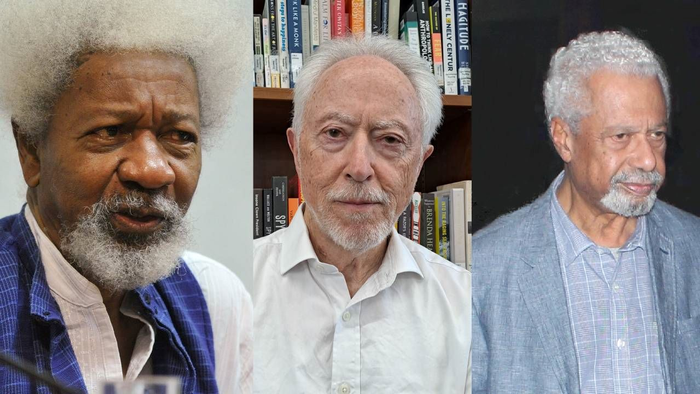“Until the lions have their own historians, the history of the hunt will always glorify the hunter.” ― Chinua Achebe.
The stories of colonial Africa before the emergence of African literary writers had been presented through the eyes of the colonialists. The negative impressions created by these one-sided stories portrayed Africa as not only primitive but also justified the bias that fueled the partitioning and exploitation of Africa by Eurocentric forces.
As the wave of the civil rights movement in the United States reached a crescendo, many African literary writers drew inspiration from the movement and seized the opportunity the power of the pen provided to not only change the misconceptions of European scholars about Africa but also to question and challenge colonial positions of issues concerning Africans.

Chinua Achebe. Photo: Stuart C. Shapiro, CC BY-SA 3.0, via Wikimedia Commons
Prominent among such writers is the Nigerian author the Late Chinua Achebe whose literary work “Things Fall Apart” portrayed Okonkwo (an Igbo/African man) who struggled to hold on to his African identity while watching everything he held dear vanish away due to the influence of colonialism in Africa.
Other writers such as Ngugi wa Thiong’o, Mariama Ba, Wole Soyinka, Tsitsi Dangarembga, and many other writers were also instrumental in the fight for the liberation of Africa.
With colonialism ended the literary landscape of Africa began to emerge as more and more literary writers began to create narratives for Africa and Africans. For a continent rich in folklore and oral history, many writers leveraged the art of storytelling to draw attention to the struggles, triumphs, expectations, and experiences of the people.
Every literary work provided an expose to the history and culture of a specific group thereby giving readers a rite of passage to better identify and appreciate the experiences of the group.

Ngugi wa Thiong. Photo by Niccolò Caranti – Own work, CC BY-SA 3.0 Wikimedia Commons
Aside preservation of African culture and history, many African writers have leveraged literature as a tool to preserve and promote the African language. The likes of Ngugi wa Thiong who is from Kenya by birth present some of his literary works in his native language Gikuyu as a way to identify and connect with his roots.
As globalization takes root, many African literary writers have begun to appreciate the importance of presenting African Literature in a way that appeals to a global audience without losing the unique African identity.

Chimamanda Adichie (Slowking, GFDL 1.2, via Wikimedia Commons), Yaa Gyasi (By Bank Square Books, CC BY 2.0, Wikimedia Commons), Mariama Bâ (By unknown – Original publication: unknownImmediate source: Afrolegends, Fair use), Ben Okri (By Metsavend – Own work, CC BY-SA 3.0, Wikimedia Commons), Ayọ̀bámi Adébáyọ̀ (By Tomiwa Ajayi – Ouida Books free to use author photos, CC BY-SA 4.0, Wikimedia Commons), Leila Aboulela (By Vaida V Nairn, CC BY-SA 3.0, Wikimedia Commons)
Today, African literary writers have adopted various writing styles that explore social issues and complexities of life. Writers such as Chimamanda Adichie (Half of a Yellow Sun, Americanah, Purple Hibiscus), Yaa Gyasi (Homegoing), Mariama Bâ (So long a Letter), Ben Okri (The Famished Road), Ayọ̀bámi Adébáyọ̀ (Stay with Me), Leila Aboulela (River Spirit) all tell stories that not only take root in the African identity but also portray the same struggles of humanity.

African writers who have received the Nobel Prize in Literature: Wole Soyinka (By Geraldo Magela/Agência Senado – Cropped from CDH – Comissão de Direitos Humanos e Legislação Participativa, CC BY 2.0, Wikimedia Commons), J.M. Coetzee (By Laterthanyouthink – Own work, CC BY-SA 4.0, Wikimedia Commons), Abdulrazak Gurnah (ফয়জুল লতিফ চৌধুরী, CC BY-SA 4.0, via Wikimedia Commons)
The successive rise and impact of African literature can be seen through the myriad of awards won over the years. The likes of Wole Soyinka, J.M. Coetzee, and Abdulrazak Gurnah winning the Nobel Prize in Literature is a testament to how far African Literature has come. Other authors such as Chimamanda Adichie, Lauren Beukes, Nnedi Okorafor, Peace Adzo Medie, and David Diop have also won prizes for their literary works.
African literature will always remain a tool of expression for many African writers committed to changing the narratives of how the rest of the world views Africa while ensuring that it fosters a sense of identity and pride in the rich cultural heritage of the beautiful continent.

Okechukwu Nzeribe works with the Onitsha Chamber of Commerce, in Anambra State, Nigeria, and loves unveiling the richness of African cultures. okechukwu.oniccima@gmail.com





